The moon took on an eerie blood-red hue on Tuesday during the first total lunar eclipse of 2014, a celestial sight that wowed potentially millions of stargazers across North and South America.
The lunar eclipse unfolded over three hours beginning at about 2am EDT, when the moon began moving into Earth's shadow. A little more than an hour later, the Moon could be seen eclipsed and bathed in an orange, red or brown glow.
Click on NEXT to see how it unfolded...
Missed the 'Blood Moon'? See it HERE
Image: A shadow falls on the moon as it undergoes a total lunar eclipse as seen from Mexico CityPhotographs: Edgard Garrido/Reuters
Depending on local weather conditions, the eclipse was visible across a swathe of the United States.
Viewers from Florida to California and beyond went to viewing parties and social media and other websites to gawk and share photos of the so-called "blood moon".
Click on NEXT to see how it unfolded...
Missed the 'Blood Moon'? See it HERE
Image: A shadow falls on the moon as it undergoes a total lunar eclipse as seen from Mexico CityPhotographs: Edgard Garrido/Reuters
Eclipses occur two or three times per year when the sun, Earth and the moon line up so that the moon passes through Earth's shadow.
Click on NEXT to go further...
Missed the 'Blood Moon'? See it HERE
Image: A shadow falls on the moon as it undergoes a total lunar eclipse as seen from Mexico CityPhotographs: Edgard Garrido/Reuters
Today was the first of four consecutive phenomena of this kind taking place this year and next, which astronomers call a tetrad.
The last time a tetrad took place was in 2003-2004, with the next predicted for 2032-2033.
In total, the 21st century will see eight tetrads.
Click on NEXT to go further...
Missed the 'Blood Moon'? See it HERE
Image: A shadow falls on the moon as it undergoes a total lunar eclipse as seen from Mexico CityPhotographs: Edgard Garrido/Reuters
Eclipses occur two or three times per year when the sun, Earth and the full Moon line up so that the Moon passes through Earth's shadow.
Tuesday's eclipse will be the last full lunar eclipse visible from the United States until 2019, NASA said.
Click on NEXT to see more PHOTOS...
Missed the 'Blood Moon'? See it HERE
Image: A shadow falls on the moon as it undergoes a total lunar eclipse as seen from Mexico CityPhotographs: Edgard Garrido/Reuters
Astronomer Bob Berman, who hosted a live lunar eclipse webcast for the Slooh community telescope using views from Arizona's Prescott Observatory, said event was also one for the record books because of another bright object in the predawn sky.
"It was the most special one, I would say, of our lives," Berman said during the Slooh webcast. "What made it particularly extraordinary was that it happened on the same night as the closest approach of Mars to Earth in years."
Click on NEXT to go further...
Missed the 'Blood Moon'? See it HERE
Image: The moon is seen behind a building during a total lunar eclipse over Buenos AiresPhotographs: Marcos Brindicci/Reuters
Later this month, from April 28 to April 29, the sun will turn into a "ring of fire" during an annular eclipse.
It's possible, however, that the celestial sight will only be visible for penguins. The solar eclipse's totality will only be visible over an uninhabited part of Antarctica. This year's total lunar eclipses and solar eclipses are among the most promising stargazing events of 2014.
Click on NEXT to go further...
Missed the 'Blood Moon'? See it HERE
Image: A shadow falls on the moon as it undergoes a total lunar eclipse as seen from Mexico CityPhotographs: Edgard Garrido/Reuters
As the Earth positions itself between the sun and the moon, a reddish hue surrounds the moon due to the indirect sunlight that manages to reach and illuminate it.
Sunlight first passes through the Earth's atmosphere, filtering out most of the blue coloured light, resulting in the reddish color.
Earth's atmosphere can also refract some of the light, causing a small fraction to reach and illuminate the moon, astronomer Fred Espenak explains on his website.
Click on NEXT to see more PHOTOS...
Missed the 'Blood Moon'? See it HERE
Image: The moon is seen during a total lunar eclipse on April 15, 2014 in Miami, FloridaPhotographs: Joe Raedle/Getty Images
Despite rumours circulating online that suggest the lunar eclipse tetrad is linked to biblical prophesies of the apocalypse, there is no reason to fear tonight's blood moon, according to astronomers. In fact, eclipse tetrads are not particularly rare, Espenak said.
"During the 21st century, there are nine sets of tetrads, so I would describe tetrads as a frequent occurrence in the current pattern of lunar eclipses," he explained. "But this has not always been the case. During the 300-year interval from 1600 to 1990, for instance, there were no tetrads at all."
Click on NEXT to go further...
Missed the 'Blood Moon'? See it HERE
Image: A man takes a picture during moon rise in a suburb of ShanghaiPhotographs: Aly Song/Reuters
A video story on space.com poetically and accurately explains the reason for the red tint.

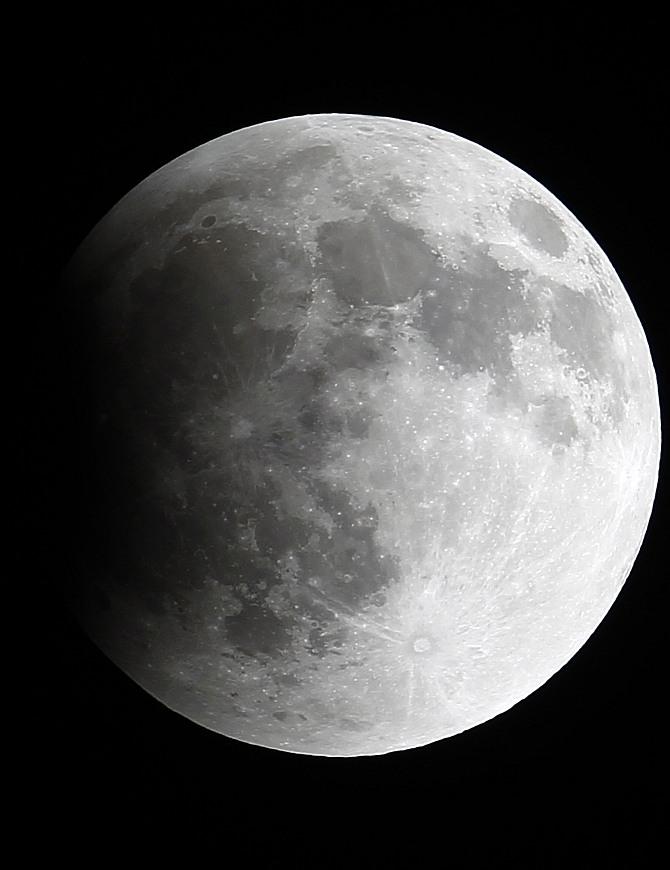
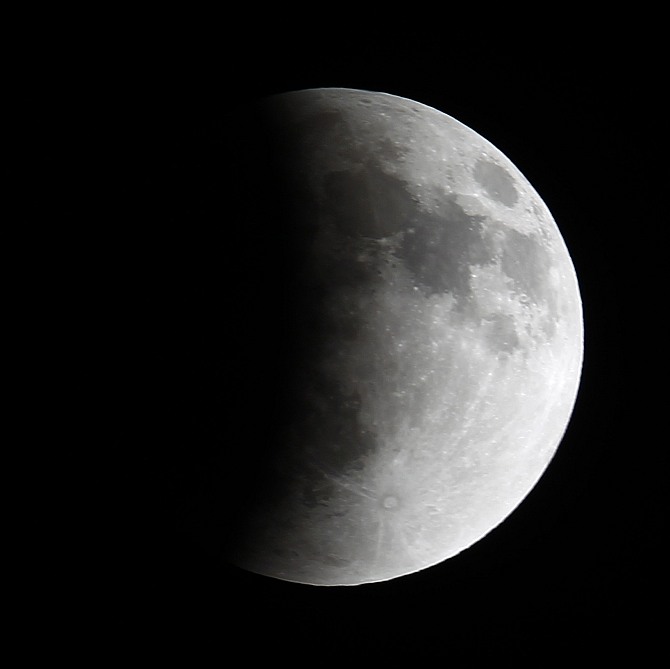
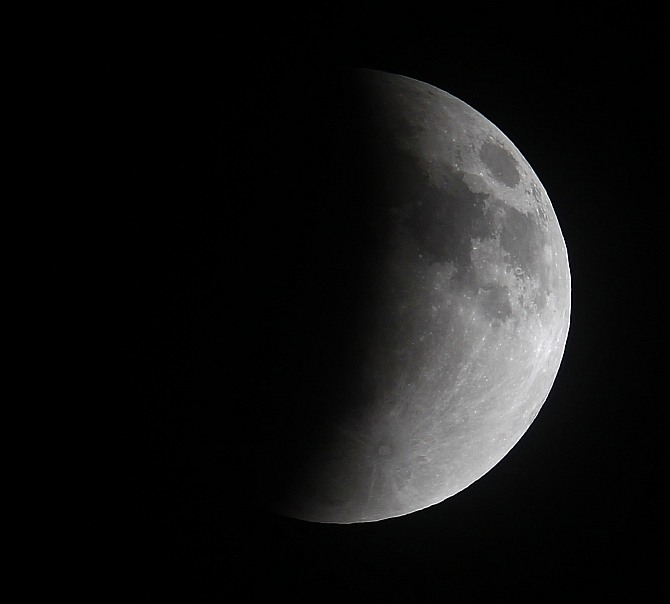
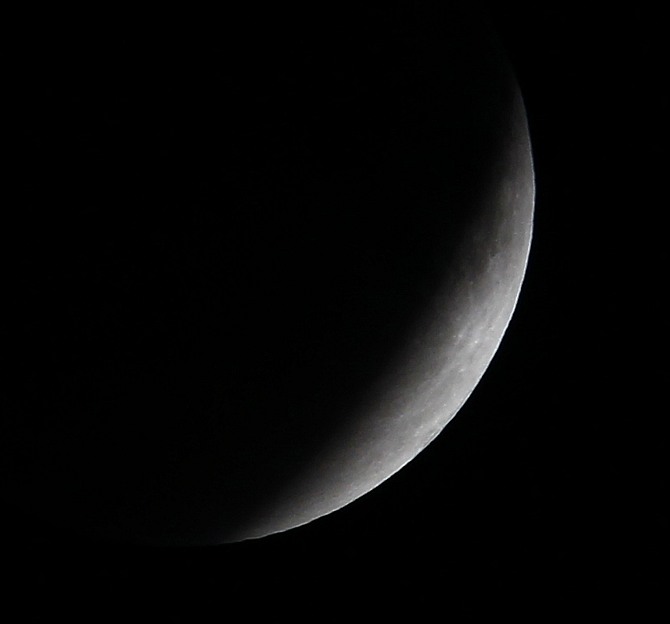
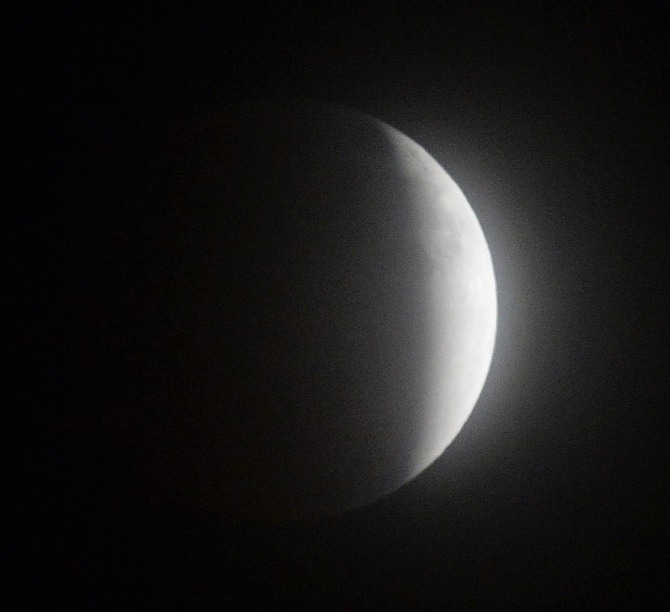
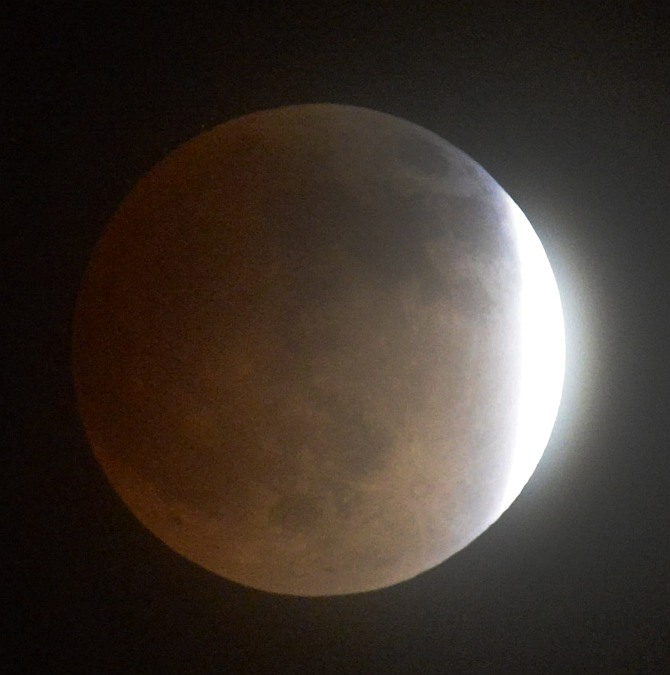
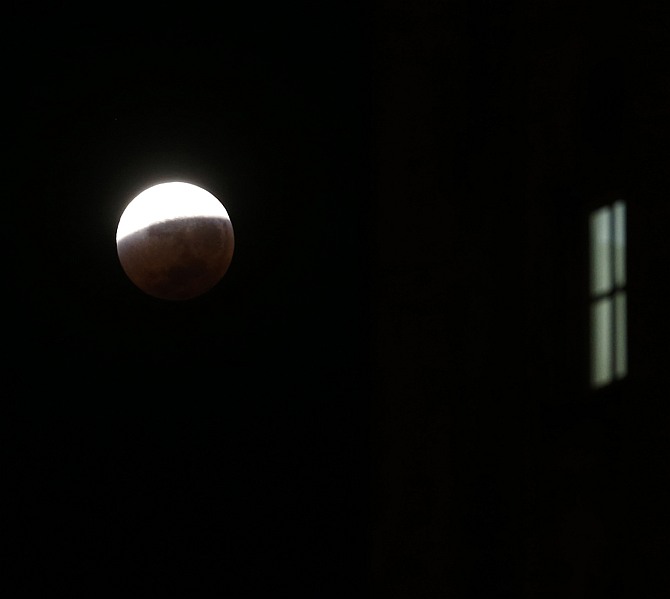
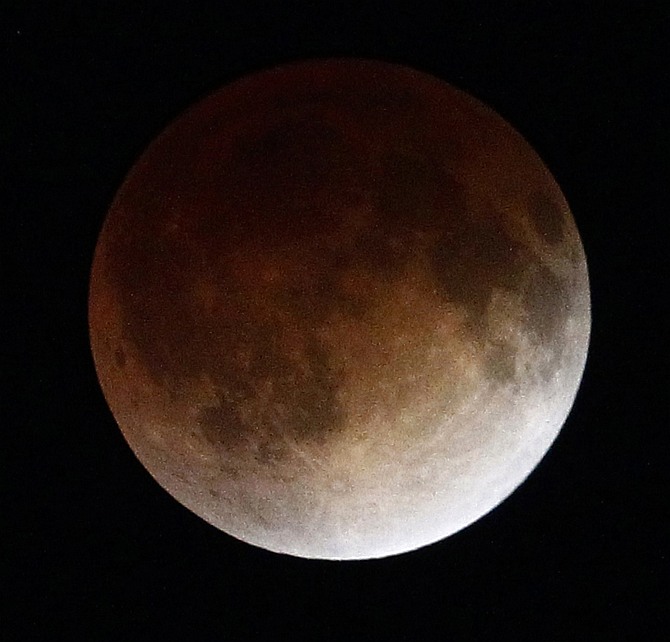
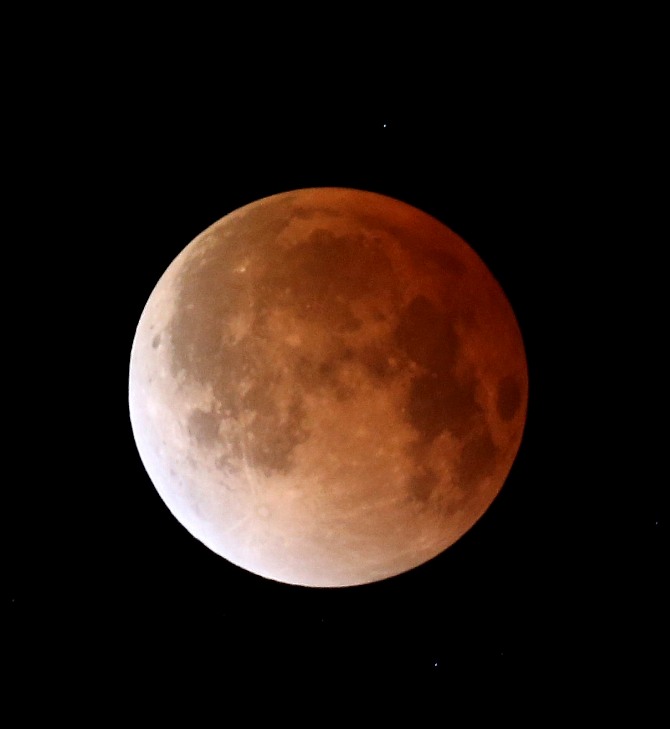
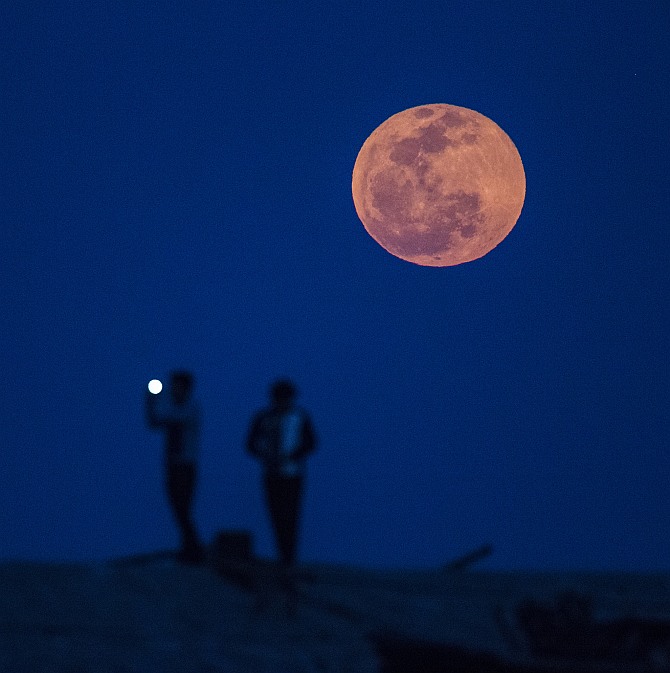
article